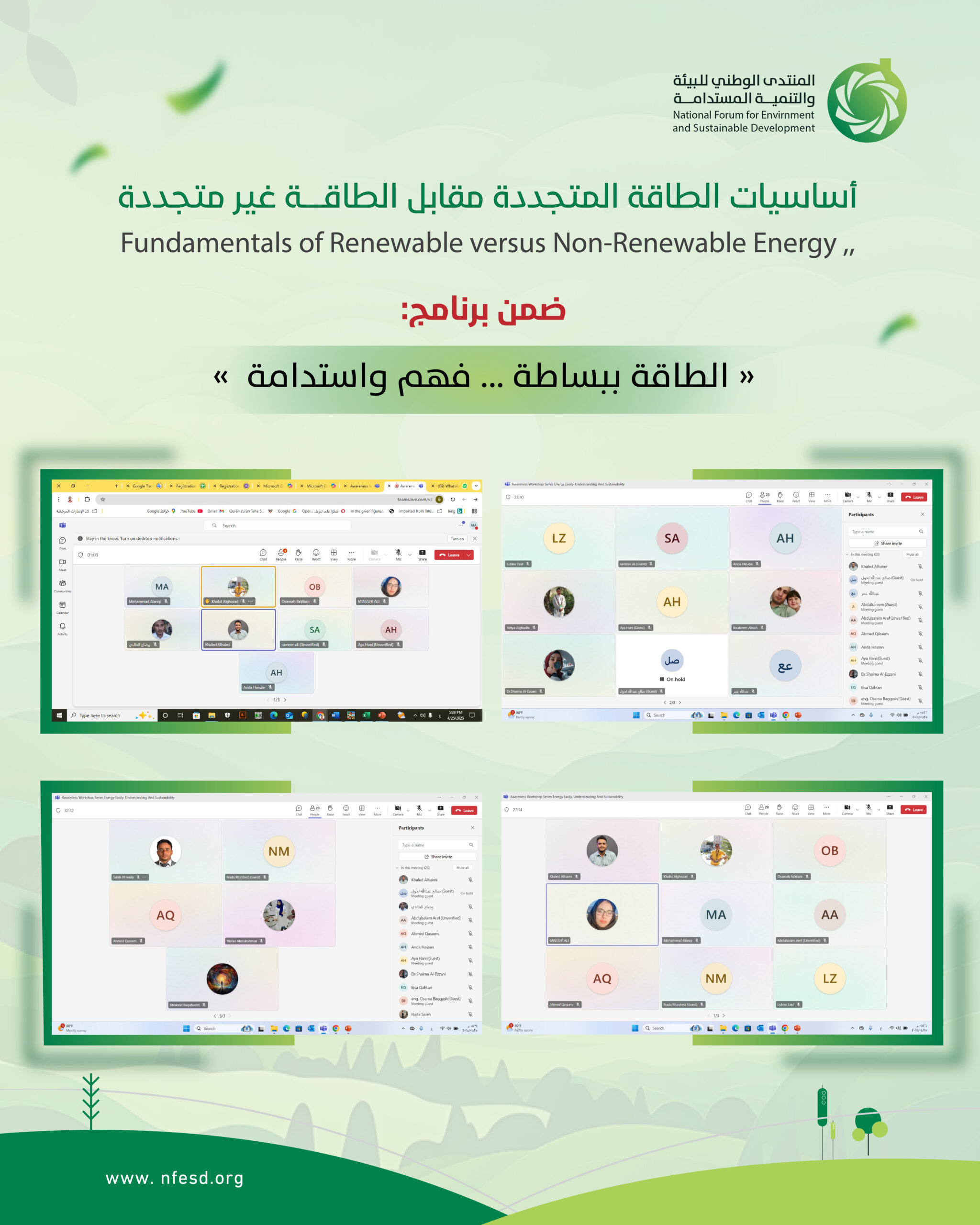The National Forum for Environment and Sustainable Development (NFESD)
The National Forum for Environment and Sustainable Development (NFESD) convened an online seminar via the “Zoom” platform on Wednesday, March 26th, under the theme: “The Significance of Scientific Education in Fostering Climate Action.” The event witnessed the participation of over 84 individuals from Yemen, Jordan, and Egypt.
This seminar served as an introductory activity within the program titled “Scientific Education for Enhancing Societal Awareness of Climate Change,” launched by NFESD. The program aims to bolster climate awareness among engaged and proactive youth in the fields of environmental advocacy and climate change mitigation.
The seminar commenced with welcoming remarks from the Climate Change Program Coordinators at the Forum, Ms. Muyassar Al-Dabawi and Mr. Abdul Salam Habras. They provided an overview of the “Scientific Education for Enhancing Societal Awareness of Climate Change” program in particular, and the broader programs of the National Forum for Environment and Sustainable Development in general.
During his presentation at the seminar, the Executive Director of the Forum, Engineer Mohammed Al-Yitari, emphasized the importance of societal awareness in strengthening individual responsibilities towards the environment. He asserted that addressing climate change necessitates broad community engagement, particularly from the youth demographic.
Engineer Al-Yitari outlined the history of climate change from the perspective of international and regional agreements, reviewing key treaties and international bodies such as the Intergovernmental Panel on Climate Change (IPCC) and the United Nations Framework Convention on Climate Change (UNFCCC), elucidating their objectives and impacts on environmental policies.
For his part, the Programs Director at the National Forum for Environment and Sustainable Development, Dr. Khaled Al-Ghozail, presented fundamental aspects of the climate change phenomenon during his paper at the seminar. He began by clarifying the scientific distinctions between climate change and weather fluctuations, the natural causes of climate change, and the human-related causes and factors that have exacerbated the phenomenon. He further elaborated on the impacts of climate change on the environment and biological systems, the correlation between the phenomenon and rising global temperatures, and the formation of natural disasters such as droughts, forest fires, and floods in Yemen, as well as the loss of biodiversity. Before concluding, he addressed crucial practical solutions to mitigate the effects of the phenomenon, including reducing reliance on carbon-emitting gases, investing in renewable energy and technological innovations, and, above all, enhancing societal awareness of environmental and climate issues.
The seminar concluded with an open discussion centered on the pivotal role of youth in climate action. Participants addressed the significance of scientific research, community engagement, advocacy, and innovation in this domain. The floor was then opened for questions and discussions, featuring contributions from participants in Jordan regarding their climate policies and solutions.

